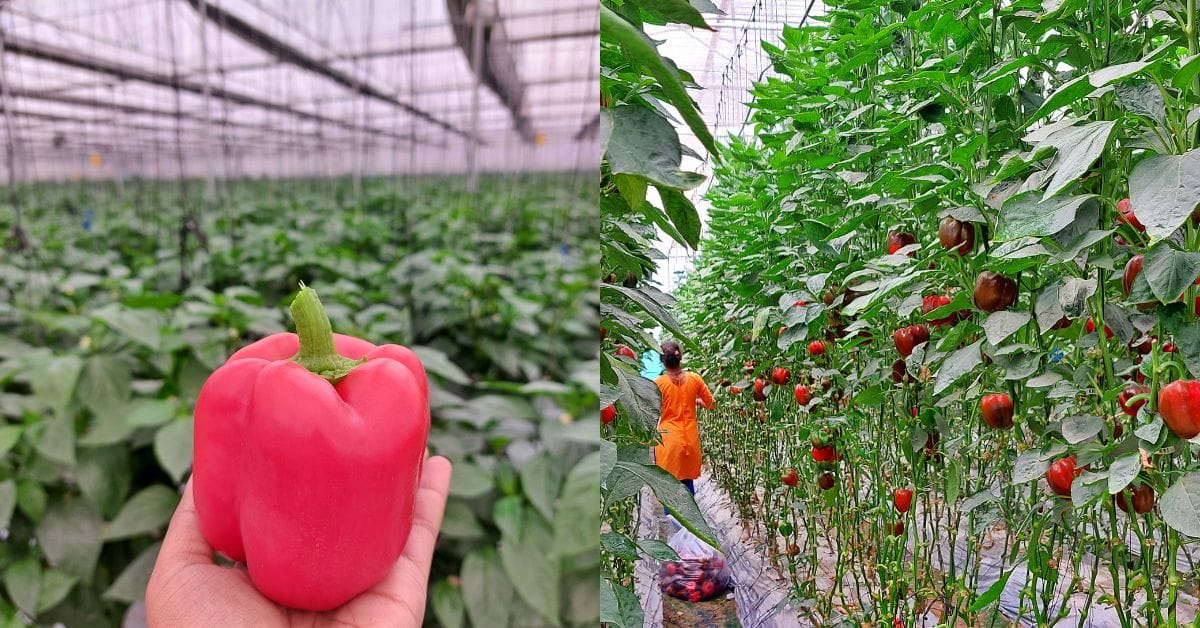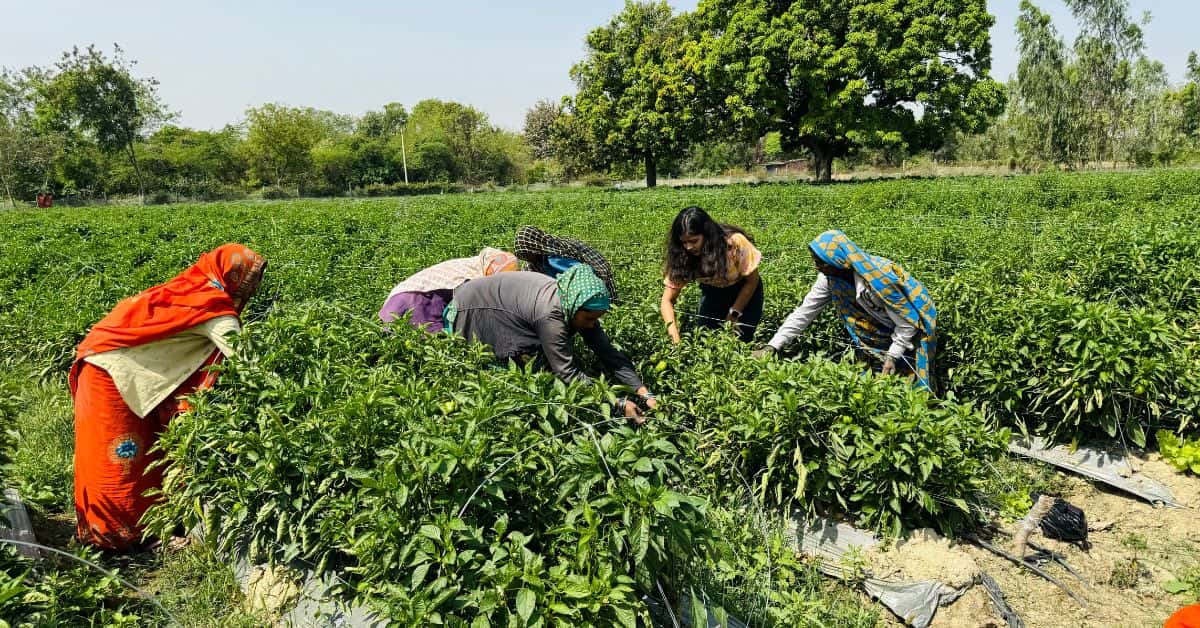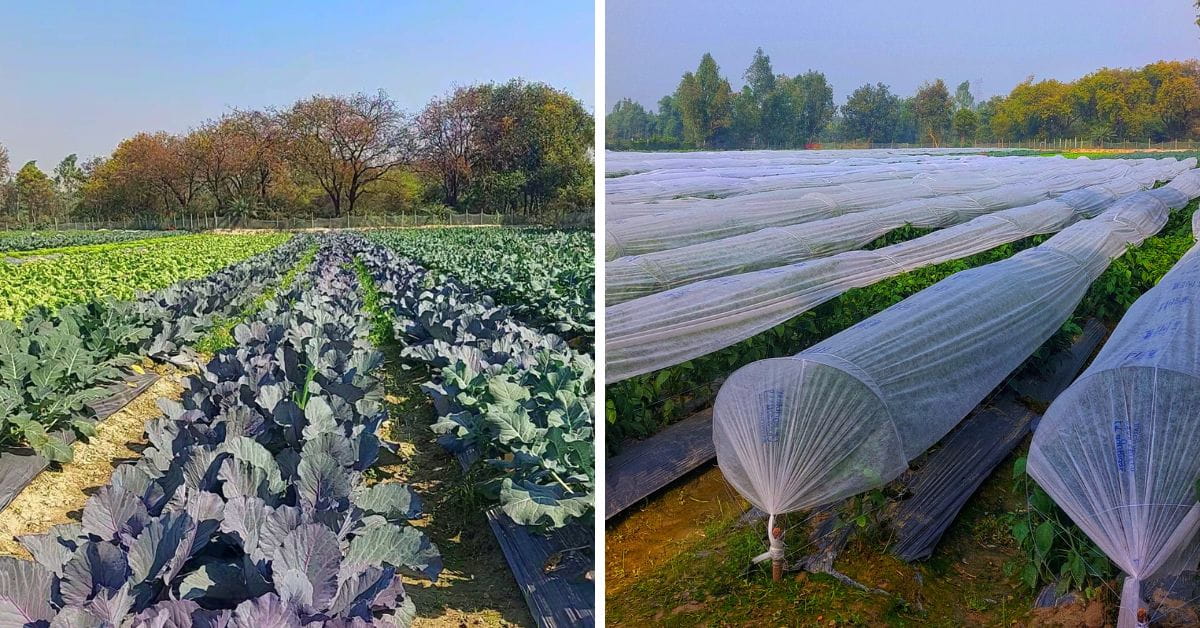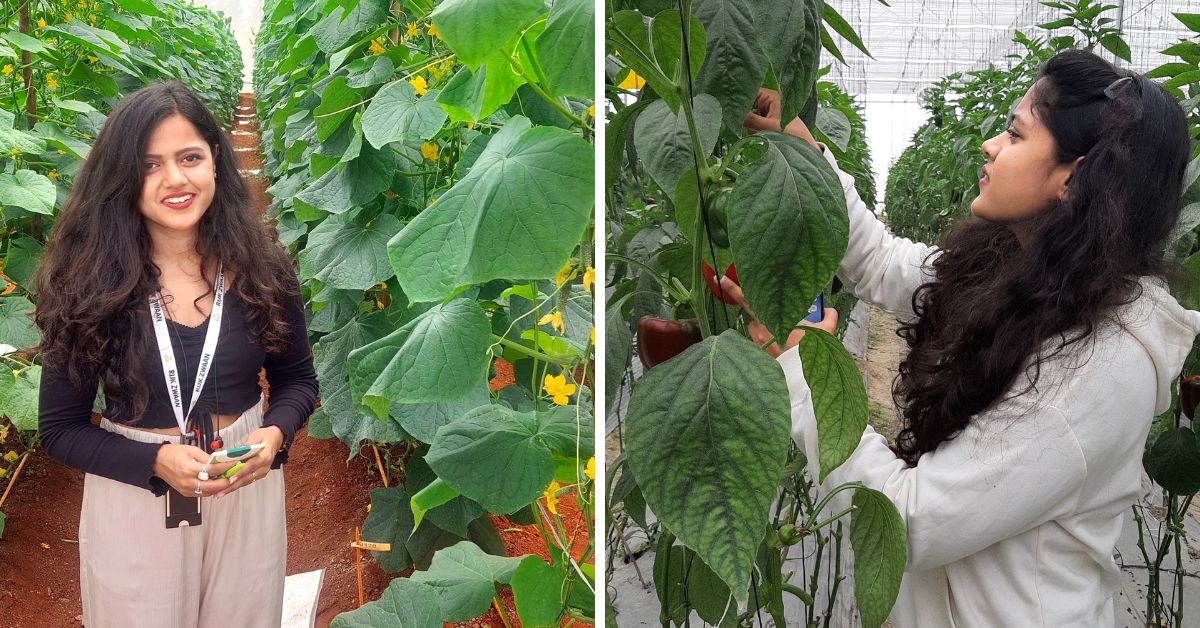During placement season at Hindu College in Delhi in 2017, as students spent hours preparing for interviews, one girl remained unfazed. Anushka Jaiswal, President of the placement cell, was expected to secure a job offer, yet she chose not to accept one.
The 28-year-old from Lucknow was clear about her goal — she wanted to make an impact at the grassroots level. While she hadn’t figured out the specifics, she was certain of her motivation. Prior to that, she had pursued French at St Stephen’s College but felt unsatisfied and returned home in search of her purpose.
Her quintessential “aha” moment came from a humble attempt at growing plants on her terrace, including tomatoes. Enjoying the process, she began to explore the potential of agriculture as a career. One evening, while sipping tea, a conversation with her brother gave her just the push she needed to pursue this path.
Encouraged by her brother, she enrolled in horticulture training at the Institute of Horticulture Technology in Noida. Additional agricultural courses cemented her interest in protected farming.
After extensive research and equipping herself with the necessary courses, she started a polyhouse farm on an acre of land in 2020. Over the past four years, she has made a name for herself in Lucknow and surrounding areas for her exotic vegetables, particularly different types of bell peppers.

Today, the progressive farmer cultivates these vegetables on over six acres of land, earning a turnover of over Rs 1 crore in the past year. Her produce is sold to quick commerce platforms like Blinkit and Big Basket, as well as stores like Lulu Hypermarket.
“Protected cultivation is the future of agriculture,” Anushka asserts. It offers advantages for small-scale farmers by optimising water usage, providing a controlled environment, reducing crop losses, and improving yields.
In search of a ‘missing piece’
What really sets apart Anushka’s story is the fact that she doesn’t hail from an agricultural background, yet she has carved a niche for herself in a traditionally male-dominated field. Her experiments with terrace farming in 2018-19 yielded good results, prompting her to explore a possible future in agriculture.

“I didn’t want a desk job. I wanted to do something at the ground level. Even when I tried learning French, something felt amiss. I aimed to inspire people and provide them with livelihoods and skills,” Anushka tells The Better India.
As she researched agriculture, she was adamant about avoiding traditional farming due to its myriad challenges, such as poor yields, pest infestations, and crop losses caused by unpredictable weather. With climate change further complicating matters, she found her ideal path in protected cultivation and horticulture. A course in horticulture, followed by training in mushroom cultivation at the Institute of Mushroom Research in Solan, gave wings to her dreams. She learnt protected cultivation, hydroponics, horticulture, and more through various courses.
By growing plants in a controlled environment, farmers can get a stable yield and quality produce, safeguarded from adverse climatic conditions.
Armed with his knowledge, Anushka started farming on an acre of land in Mohanlalganj, a village on the outskirts of Lucknow. She set up a polyhouse in August 2020, creating a closed system.
“We installed GI polysheets, irrigation sprinklers, a fan, and a pad system to provide a controlled climate. This allows us to create a microclimate where temperature and humidity are regulated. Our crops are protected from extreme temperatures, which helps them withstand challenges over time,” the 28-year-old explains.
At just 24, the economics graduate started her farming career with English cucumbers. In her first harvest, she achieved an impressive yield of 51 tonnes.
“This is nearly three times the yield that traditional farmers receive,” she claims.
Buoyed by her initial success, she then cultivated red and yellow bell peppers, which also thrived. On one acre of land, she yielded 35 tonnes of bell peppers, selling for an average price of Rs 80-100 per kilo.

As her polyhouse flourished, she leased an additional five acres, diversifying her crops to include many exotic vegetables such as lettuce, bok choy, zucchini, kale, parsley, and red cabbage. She has also launched a nursery.
The harvest time for each vegetable varies. Bell peppers have a 10 month crop cycle, cucumbers take three to four months, salad vegetables mature in 45 days, and zucchinis require about four months.
Today, she produces almost 210 tonnes of bell peppers every year. Apart from being sold on quick commerce platforms, her vegetables also make their way to wholesale markets in Delhi and Varanasi, resulting in a turnover of Rs 1 crore. She employs 25-30 workers, predominantly women.
What’s most important, Anushka says, is to let the land rest periodically to enhance its productivity.
“We solarise the land for two months each year, May and June, to harness the sun’s energy. The process involves covering the soil to let it breathe. We don’t use chemicals; instead, we add manure to tackle soil-borne diseases,” she adds.
‘People didn’t take me seriously as I am a woman’
The young farmer has quickly gained recognition in Lucknow and nearby cities, with her produce referred to as ‘Madam ke khet ke shimla mirch’ (Bell peppers from Madam’s farm).

Her journey, like any entrepreneur, has been filled with ups and downs and a steep learning curve.
“People doubted me in the beginning, as I was just 24 when I started. They weren’t used to a woman practising this new form of cultivation. Most farmers in this area are men. My family was my biggest support,” she says.
The quality of her produce added with her work ethic silenced critics. However, creating the necessary infrastructure, which is capital-intensive, posed additional challenges.
Another major challenge has been the lack of good trainers in the field.
“No matter how many courses one takes, things are very different practically,” she adds.
She aims to change this by helping people set up similar farms. Her farm welcomes visitors, and Anushka is always up for sharing her knowledge. What helped her, she stresses, was a deep commitment to the subject.
In the initial year, she dedicated countless hours to ensuring everything was perfect.
Built from scratch, she also cultivates crops for individuals who lack the time to manage their own farms. Finding the right team is crucial, she notes.
“I’ve been fortunate to find excellent people. Today, they can run the farm by themselves even in my absence,” she states.
Her vision is to include more women in her workforce.
“I hope that more women, who are currently engaged in terrace gardening, look at ways to expand their efforts. The knowledge they gain over the years can be applied on a larger scale. Start small, and you can achieve great things,” Anushka encourages. .
Edited by Arunava Banerjee. Images: Anushka Jaiswal
No comments:
Post a Comment